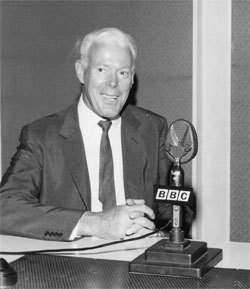Words are coming back
Trevor Leggett was head of the Japanese Department of the BBC and this is a part of one of his broadcasts

ZUBARI 21.08.1988
Hullo listeners
I am often asked by Japanese about the differences between American and English. They say: ’Are there many American words coming into English now, as exports?’ I often reply: ’There are many words coming from America to England, but it is well-known among students of the English language, that many words which were in general use in the 17th century have now become archaic and obsolete in Britain. But when the great wave of emigrants went from Britain to America in the 17th century, they took these words with them.
The language there was more conservative, not more flexible. So, these English words remained in use in America, when they had died out in A Britain. When we hear Americans saying them,’ they seem like new words or rather, new meanings. The words themselves tend to be still part of English vocabulary, but they have lost their original meaning.
For instance, to an Englishman, “mad” means “insane.” But Americans often use to it mean “angry”. “I got mad ” means “I got angry” when an American says it. An Englishman would not say that, because it would mean “I became insane”. But “mad” meaning angry was part of the standard English vocabulary in the 17th century.
So, we can say that these “American” words are not imported – but they are being re-imported. We once exported them to America, and now they are coming back.
© Trevor Leggett